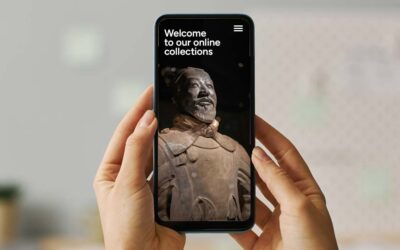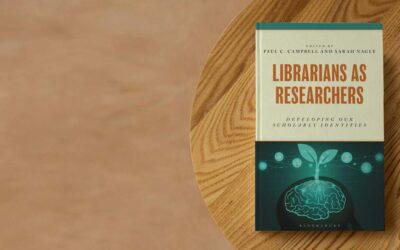The Changing Definition of Museums

Rachael Cristine Woody
The International Council of Museums undertook a project to update the definition museum professionals use for “museum.” We sometimes mistakenly think our field will never need to change and yet, one of the core reasons we value history is because it helps us contextualize and inform our present so that we may make a better future.
At the 2016 International Council of Museums (ICOM) meeting a committee was selected to update the definition museum professionals use for “museum”. During this process the committee solicited member crafted definitions and received more than 250 submissions. The ICOM Executive Board selected the below definition for a vote which was supposed to take place September 7, 2019, at the Kyoto International Conference Center in Kyoto, Japan.
The Definition of Museum
Here are the current and proposed definitions of “museum” as listed on ICOM’s website.
This is the current ICOM definition for “museum” according to the ICOM Statutes, adopted by the 22nd General Assembly in Vienna, Austria, on 24 August, 2007:
A museum is a non-profit, permanent institution in the service of society and its development, open to the public, which acquires, conserves, researches, communicates and exhibits the tangible and intangible heritage of humanity and its environment for the purposes of education, study and enjoyment.
This is the proposed new definition for “museum”:
Museums are democratising, inclusive and polyphonic spaces for critical dialogue about the pasts and the futures. Acknowledging and addressing the conflicts and challenges of the present, they hold artefacts and specimens in trust for society, safeguard diverse memories for future generations and guarantee equal rights and equal access to heritage for all people.
Museums are not for profit. They are participatory and transparent, and work in active partnership with and for diverse communities to collect, preserve, research, interpret, exhibit, and enhance understandings of the world, aiming to contribute to human dignity and social justice, global equality and planetary wellbeing.
Vote Postponed as International Disagreement Ensues
Due to significant disagreements among the international community, the vote to adopt the new museum definition was postponed by ICOM with no clear timeline for what will happen next. Given that the museum community looks to ICOM as one of the major authorities on museum activities and standards, there’s tremendous pressure on ICOM to “get it right”. But what “right” means is being hotly debated.
Many, including Time Magazine, covered the international kerfuffle summarizing the issue among international museum professionals as ideological differences:
To some, the new wording represents a worthy mission statement: updating a years-old definition and acknowledging that museums have a role to play in civic society, no matter where they are. But other experts have condemned the new definition’s “political tone,” decrying it as an “ideological” manifesto and expressing concerns that it doesn’t address the traditional functions of a museum.
Politics and the Museum
Historically, museums and museum professionals have viewed themselves as neutral and politically agnostic. Museums curate objects and mount exhibits based on historical facts. However, as we all come to better understand the full ramifications of centuries living in a fundamentally inequitable system, so to do we realize that the way we define museums is too simplistic—and frankly, not true. While the evolution for museums is unstoppable, there are still some museum professionals who cling to the naïve view that museums are neutral; that to strive for higher ethics is more a fashionable trend than permanent intellectual shift.
One such individual is François Mairesse, a professor at the Université Sorbonne Nouvelle. Profession Mairesse has been quoted by The Art Newspaper and others, stating: “A definition is a simple and precise sentence characterising an object, and this is not a definition but a statement of fashionable values, much too complicated and partly aberrant.”
Jette Sandahl, founding director of the Museum of World Cultures in Sweden and the Women’s Museum of Denmark, and leader of the new museum definition initiative, rejects the criticism that the new definition is too political: “When you say that something is political or ideological, well, is it political to work with marginalized communities and women, as many museums are doing now, or is it political not to?”
Museums are Inherently Political
The museum definition debate is reflective of larger political issues at play in the US, Canada, and Europe. Museums have a tradition of community symbiosis and as we face larger issues of social change museums are finding themselves in the new-to-them position of being political – as is evidenced by the #MuseumAreNOTNeutral movement co-founded by LaTanya Autry (curatorial fellow at the Museum of Contemporary Art in Cleveland) and Mike Murawski (director of learning and community partnerships at the Portland Art Museum in Oregon). Museum practices of Diversity, Equity, Accessibility, and Inclusion (DEAI) and the call to address colonialism within the museum puts pressure on museums to hold themselves accountable. Murawski makes the following point: “It doesn’t make any sense when people say museums are neutral and can’t be political. If you know the history of these places, you know they’re a product and project of colonialism.”
Conclusion
ICOM’s definition for “museum” may not be settled anytime soon, but the dialogue it’s inspiring is inevitable when considering the larger political issues currently at work. As mentioned, those of us who work in history can sometimes see our field as one that will never need change. Yet fundamentally, we value history because it helps us contextualize and inform our present so that we may make a better future. As historians it’s literally our responsibility to see that it does.

Rachael Cristine Woody
Consultant, author, and blogger Rachael Cristine Woody advises on museum strategies, collections management and grant writing for a wide variety of clients. Read more of Rachael’s posts here. Learn about Lucidea’s Argus solution for museum collections management and digitization, which can be used to train volunteers.
Similar Posts
Presto in Practice Part 5: When Knowledge Is a Team Sport—Introducing a Sharing Culture
Collaboration happens when people trust each other enough to share. Presto helps organizations build trust, reduce knowledge hoarding, and turn everyday actions into habits that strengthen collaboration across your organization.
How to Assess Museum Online Content to Inform Future Work
Rachael Woody shares tips for reviewing your museum’s online collections presence and content to identify improvements and set clear priorities for 2026.
Interview with the Editors: Nagle and Campbell on Librarians as Researchers
Co-editors Paul C. Campbell and Sarah Nagle discuss their book and offer guidance for librarians seeking to define a research agenda and publish scholarly work.
5 Scalable Best Practices for Small or Resource-Constrained Archives
Discover 5 scalable best practices for small or resource-constrained archives, from simplifying preservation measures to adapting standards.




Leave a Comment
Comments are reviewed and must adhere to our comments policy.
0 Comments